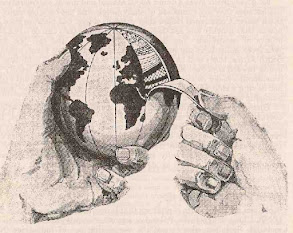The street I live on has reserved parking for residents. This should mean there’s a place for me to park my car outside or near my house. Until relatively recently, that was always the case. But lately things have changed and now it can be difficult for me to find a place anywhere on the street meaning that sometimes I have to drive around nearby streets looking for (and not always finding) a space not reserved for residents. What’s going on?
Well, first of all there’s an increasing number of families in the area with more than just one car and then more and more students from the local University living in the area are turning up in cars. In the past they would get booked by wardens for parking outside their rented accommodation, but now they’ve twigged that, if they get their logbook changed to their student address, they’re entitled to a parking permit.
Cars, cars, cars
But over and above all this there’s simply an ever-increasing number of vehicles on the road. That’s a function both of the fact that more and more people find them a convenient way to get from one place to the other and also that they’re being used to transport the increasing number of goods of all description that people are ordering online. How long can this continue?
How many more vehicles can roads, both local and long distance, take before log jams of vehicles become even more frequent than they are already and, as a matter of course, the number of vehicles looking to park exceeds the number of places available. Can anything be done about it? The answer to this question has to be not very much. There have been some attempts by government and other authorities to cope, such as additional motorway lanes or charges for entering certain areas. But measures like these, apart from being limited in scope, often give rise to further problems, for example the obvious danger to road users caused by the removal of hard shoulders to accommodate extra motorway lanes.
I know the objection will be raised that the writer of this article, as a self-confessed car owner, is part of the problem. Which up to a point I accept, but I also know I’d be happier with travel arrangements that didn’t push me to jump into the car to get from A to B but instead provided an easy communal means of transport – something that only exists to a small and erratic extent in the production for profit system we live under.
Growth, growth, growth
In fact, when looked at in the context of how things work in general, the car situation can be seen as something of an emblem of capitalist production as a whole, that is the system’s imperative to produce ever increasing numbers and kinds of goods with a view to profit regardless of social advisability or longer-term consequences. In the recent general election, a watchword of all the major parties was ‘growth’, something always projected as desirable since it evokes an increase in wealth or prosperity that will somehow make people better off or happier. At bottom of course that tends not to happen, since ‘growth’ has no power to overcome or even tame all the other negative factors arising from the unpredictability of the system we live under (eg, inflation, job reorganisation, unemployment, recession, war).
Though, in their everyday lives, most people illustrate in countless ways by their actions and attitudes that they’d rather cooperate with others than compete against them, the pervading dog-eat-dog ethic that informs the way the capitalist system works and dictates the drive for ‘growth’ forces producers to compete against one another to get their products on the market and sold to buyers – very often regardless of any intrinsic necessity.
In the UK, for example, there are more than enough houses and other forms of accommodation to satisfy everyone’s need for shelter and decent accommodation, yet many people go homeless or poorly accommodated while properties are left empty and more houses continue to be built. And, to return to transport, there are large masses of cars that are little used by their owners or lie on garage forecourts, while more and more are produced each year adding, as this article began by saying, to the problem of finding places to park them.
Control?
How can all this be brought under control? Quite simply it can’t – at least not under the buying and selling imperative of capitalism, whose only urge is to continue to produce more so that profit can continue to be made by that tiny minority of people who own the means to produce – we would call them the capitalist class. Or rather, it all could be brought under control, but only, if we, the vast majority forced to sell our energies for a wage or salary to an employer, were to opt via democratic political action to establish a different kind of society – one of voluntary cooperation, of production for use not profit, and of free access to all goods and services based on the principle of from each according to ability to each according to need. Such a society would have and would need – I venture to speculate – far fewer cars than the present one. Nor would there be a shortage of places to park them.
Howard Moss











